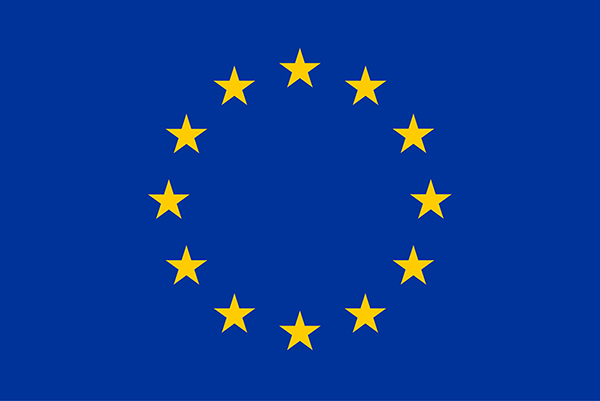SiEUGreen aspires to enhance the EU-China cooperation in promoting urban agriculture for food security, resource efficiency and smart, resilient cities. Building on the model of zero-waste and circular economy, it will demonstrate how technological and societal innovation in urban agriculture can have a positive impact on society and economy, by applying novel resource-efficient agricultural techniques in urban and peri-urban areas, developing innovative approaches for social engagement and empowerment and investigating the economic, environmental and social benefits of urban agriculture. In order to achieve its objectives, SiEuGreen brings together a multi-disciplinary Consortium of European and Chinese researchers, technology providers, SMEs, financiers, local and regional authorities and citizen communities. The project consists in the preparation, deployment and evaluation of showcases in 5 selected European and Chinese urban and peri-urban areas: a previous hospital site in Norway, community gardens in Denmark, previously unused municipal areas with dense refugee population in Turkey, big urban community farms in Beijing and Central China. Throughout SiEUGreen’s implementation, EU and China will share technologies and experiences, thus contributing to the future developments of urban agriculture and urban resilience in both continents. The impact measurement during and especially beyond the project period is a key component in the project’s design. Information and results obtained from the project will be disseminated through diverse communication and dissemination tools including, social media, an innovative app enhancing urban codesign, stakeholder conferences, hand-on training workshops, showcase demonstration forums, municipality events. A sustainable business model allowing SiEUGreen to live beyond the project period is planned by joining forces of private investors, governmental policy makers, communities of citizens, academia and technology providers.
In China, the urbanization rate has exceeded 58%. Within the rapid development, we face many challenges such as waste discharge, deterioration of urban environment and lack of communication among residents. Urban agriculture has been used as a coping strategy for urban development all over the world. EU has developed a comprehensive framework and rich experiences in urban agricultural development, while it still faces challenges in energy and water conservation, garbage reduction and greenhouse gas emissions. Against this background, Chinese premier, Mr. Li Keqiang signed the "joint declaration" on china-EU urbanization partnership with EU in 2013.
Taking into consideration the "joint declaration" and challenges in China and EU, SiEUGreen aspires to strengthen China-EU cooperation in promoting urban agriculture for food security, resource efficiency and smart, resilient cities. Through cooperative research and demonstration, the Project is expected to achieve the following specific objectives: (1) Reduce kitchen waste discharge in cities and improve urban ecological environment To realize reduction and harmless disposal of municipal refuse, increase the supply of vegetables in cities, cut down fuel consumption and exhaust emission of transport vehicles, and improve the urban ecological environment through R&D and demonstration of technologies and equipment such as composting and reduction of kitchen waste and growing vegetables on balcony, and exploration of the ways for recycling of municipal refuse. To facilitate the effective utilization of resources and the restoration of urban ecosystem through R&D and demonstration of sewage treatment technologies and equipment that recover N and P from sewage. (2) Enhance citizens’ sense of social participation and build up social care for the elderly, the disabled and other vulnerable groups To create a social space for urban residents by launching demonstrations of Happy Vegetable Gardens and balcony vegetable gardens. To enhance the sense of social participation and community attachment for urban residents, especially for the elderly, the disabled and other vulnerable groups, by sharing plantation knowledge and experience in practical production activities and exchanging farming fruits. (3) Strengthen EU-China cooperation in urban agriculture and create a "bridge" for sharing relevant knowledge and best practice Through intensive cooperation among multi-national scientific research institutions and excellent enterprises in China and Europe, the Project will give a new impetus for common development to build a new platform for international cooperation and development, and explore a new green path for the development of highly modern urban agriculture in China integrating production, ecology, society, economy and culture.
The project has received funding from the European Union’s Horizon 2020 Research, and Innovation programme, under grant Agreement N 774233 and from the Chinese Ministry of Science and Technology.
中国城镇化率已超过58%,正处于快速发展阶段,正面临着废弃物排放、城市环境恶化、居民缺乏交流等诸多挑战。欧盟已在城市农业发展方面制定了全面应对的框架,积累了丰富经验,同时也仍然面临着节约能源和水资源、减少垃圾和温室气体排放等方面的挑战。在此背景下,2013 年李克强总理与欧盟签订《中欧城镇化伙伴关系共同宣言》。该城市农业项目是为了落实中欧“共同宣言”,以探讨和解决中欧在城镇化过程中面临的城市农业发展问题。本项目通过合作研发和示范,达到以下具体目标: (1)减少城市餐厨垃圾排放,改善城市生态环境 通过厨余垃圾堆肥减量化、阳台种菜等技术和装备的研发与示范,城市废弃物资源化利用模式的探索,实现城市垃圾减量无害化,增加城市蔬菜供应,减少运输汽车的燃油消耗和气体排放,改善城市生态条件。通过污水处理技术和装备的研发与示范,对污水中N、P 元素回收利用,从而促进资源有效利用和城市生态系统恢复。 (2)提高市民社会参与感,增强社会对老年人、残疾人等弱势群体的关怀 通过建立居民快乐小菜园示范、阳台菜园示范,为城市居民营造社会交往空间,尤其对于老年人、残疾人等弱势群体,能够通过生产实践活动分享种植知识经验,交换耕种果实,增加城市人口的融合感与社区归属感。 (3)加强中欧城市农业合作,创建相关知识和最优方法共享的“桥梁” 通过中欧多国科研机构、优秀企业的深度合作,本项目为打造国际合作发展新平台增添共同发展新动力,为我国发展集生产、生态、社会、经济、文化等功能为一体的高度现代化城市农业,探索一条新的绿色发展路径。
The overall objective is to strengthen EU-China collaboration in food security and sustainable UA and to develop resilient, socially coherent and smart future cities with maximum utilization of solar energy, CO2, minimum environmental footprint and zero waste, thus contributing in circular economy at a global level, meanwhile improving social well-being and quality of life for residents. More particularly, the SiEUGreen objectives are structured as follows:
